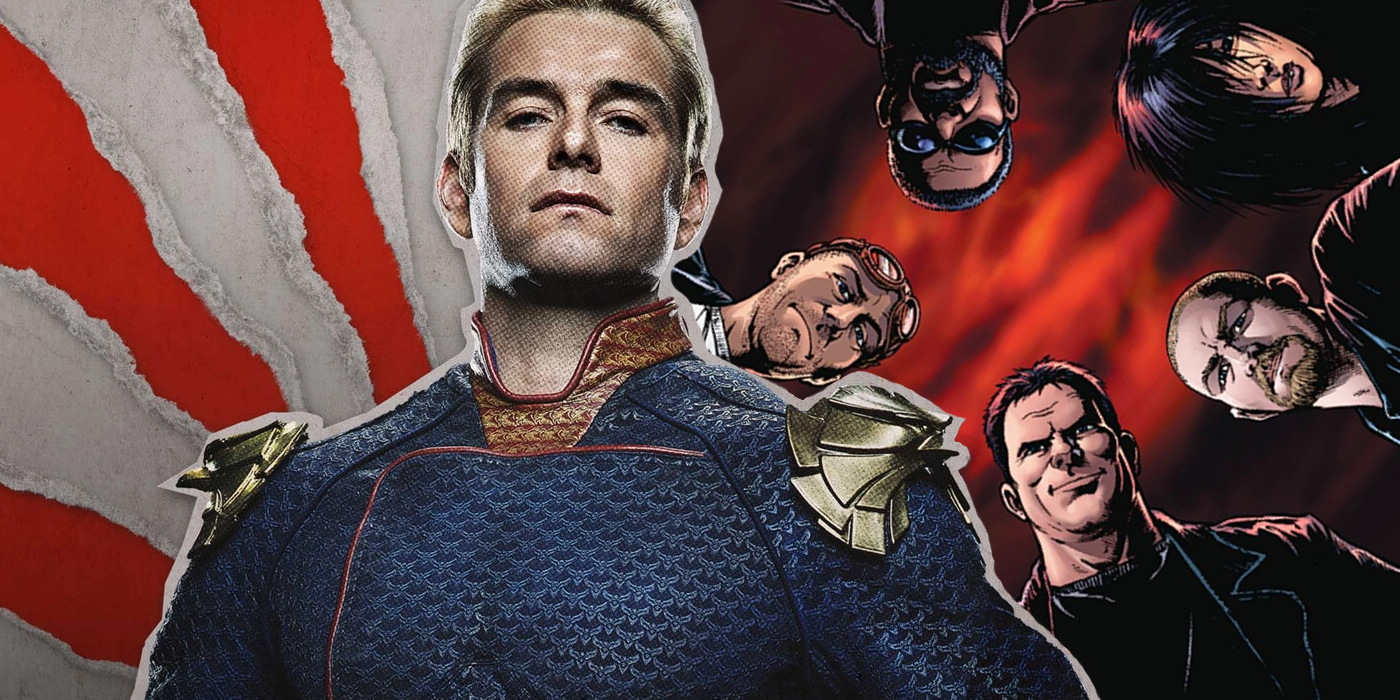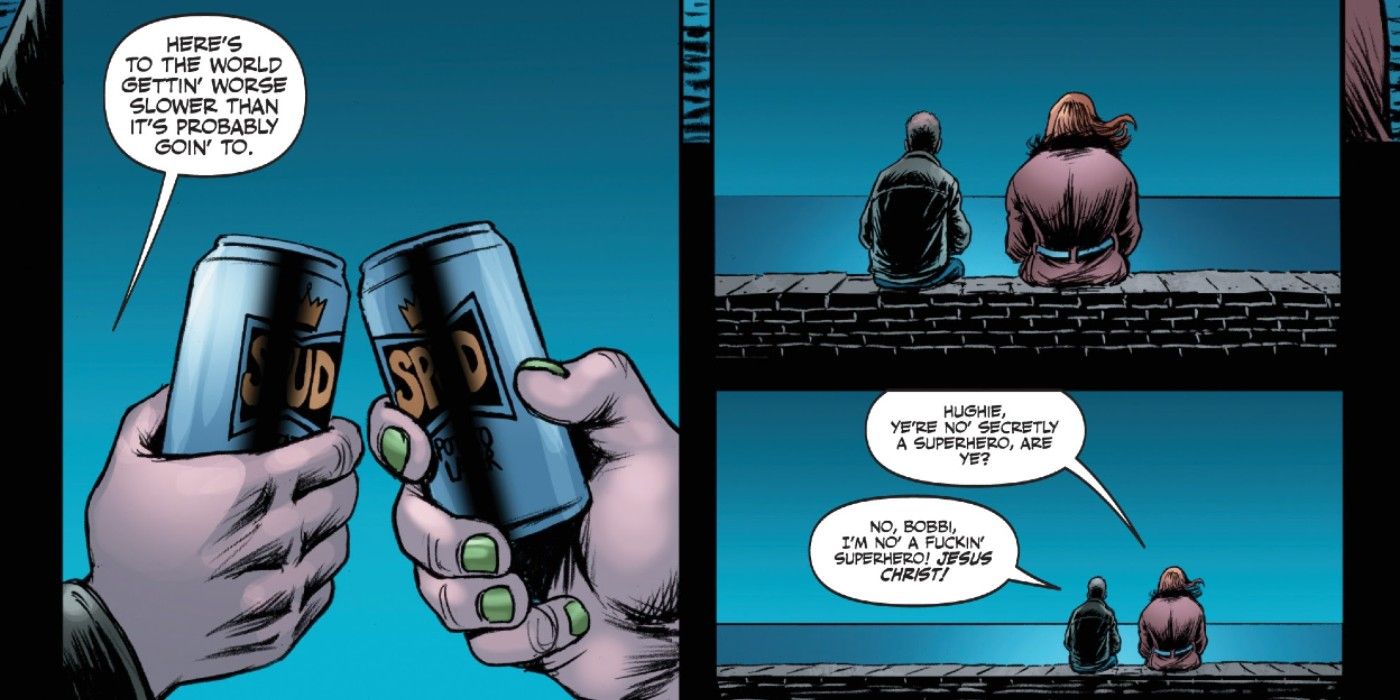Spoiler warning for The Boys: Dear Becky #1
In the world of The Boys, a world without Homelander theoretically should be a better world, but as The Boys: Dear Becky goes to show, that's not quite the case. Not when a much darker, harsher reality lays present in this same universe that prevents a theoretical happily ever after storybook ending for anyone who loathes Homelander.
The Boys: Dear Becky serves as an eight-issue mini-series placing the world of The Boys into the future (or "modern-day" 2020) thanks to a time jump. It's a world that has gone back to "normal," per the words of Hughie's childhood friend Bobbi in Dear Becky #1 by Garth Ennis and Russ Braun, years after Black Noir decimated Homelander. Bobbie continues, "...All the s**** we've got now, like D***head in the White House an' f****** Brexit, an half the bloody planet on fire... D'ye think that might just be life goin' back to what it would've been anyway?" Hughie replies, "All the s**** you can't fight, you mean. That all that multicolored bollocks just sort o' camoflaged."
This scene and, really, The Boys: Dear Becky in general as a sequel, highlights exactly what The Boys has always been about from the beginning: that there is a much bigger picture with a darker villain at the center of it all. And yes, that villain is harsher, crueler, and more real than Homelander ever was. That villain is politics, capitalism, and the corporations who run all of it from behind the scenes.
At its core, The Boys has always been a commentary on how both superheroes and superhero entertainment in general (i.e. comics, movies, etc.) is merely a distraction away from the scarier, harsher realities of the world, all while that harsh world around us keeps turning with or without us noticing. This fact feels emphasized in Dear Becky, which reflects the current state of the real-world political climate without any sign of a difference, save for some extremely minor alterations. Similarly, the original The Boys comic book series ended with the Barack Obama vs. John McCain election. Even in a world where superheroes actually exist, it doesn't hold the same relevance or power compared to the much larger political powers at play. And that is scary.
Theoretically, one would assume that someone like Homelander even existing should take a huge precedence over the universe and his death should completely reshape history as we (or at least citizens in the Boys universe) know it. Instead, he's completely forgotten almost immediately in the history books. At the end of the day, even the evil and power of Homelander is nothing compared to larger political parties at play, which remain as fully intact in the Boys universe as they are in the real world.


